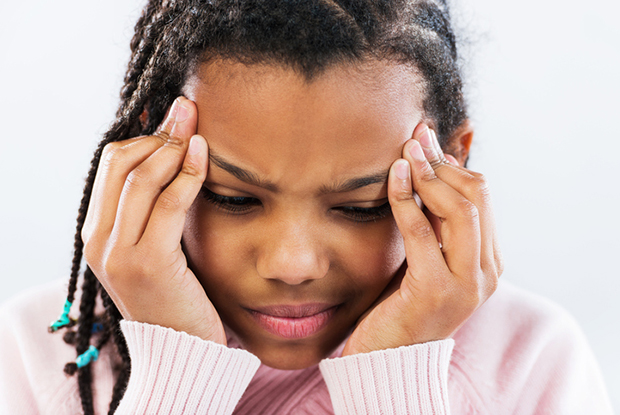by Patricia Rappaport, MD, FAAP, Town Pediatrics, PC
Summer—just the word brings up thoughts of family picnics, outdoor games, pools, beaches, barbeques, fireworks…and lots of fun! What follows are a few simple tips to keep your children’s summer a happy and safe one.
• WATER
Water fun is a great way to stay cool and encourages exercise. Toddlers and young children must be supervised at all times when around water. “Touch supervision” means keeping your child at arm’s length and having eyes on them at all times. While swim suits with floaties and water wings can provide a safety back up, they should not be relied upon for protection. Consideration must be given to the fact that they can provide a false sense of security to young children in the water. They may mislead a youngster into thinking they can swim independently when they can’t. Life vests or jackets, of course, should be used when boating by everyone. Older children should understand the concept of swimming with a buddy. This provides protection if one tires while swimming or gets into trouble in the water, a lifeguard can be alerted. Swimming only in areas where lifeguards are available is a smart bet!
Drying out ears after swimming can prevent swimmer’s ear. Commercial products are available for use after swimming or you can make your own. Mix 14 ounces of rubbing alcohol with 2 ounces of white vinegar. Put 2 to 3 drops into the ear canal after swimming. This is preventative—do not use in already sore or painful ears!
Waterborne diarrheal illnesses can occur in summer months. If your child has diarrhea for more than 3 days, seek medical attention. See www.healthyswimming.org posted by the CDC for more information.
• FIREWORKS
Fourth of July brings lots of fun and celebration but leave the pyrotechnics to the experts! Home-bought fireworks are fraught with danger. Every year serious burns, eye injuries, and amputation of fingers occur due to kids playing with these devices at home. Better to watch the show from afar. Make sure kids stay a safe distance from others who choose to do their own fireworks.
• SUN EXPOSURE
By now we all know how important sun protection is. Remember SPF 30 or above and a sunblock component like Parasol 1789 or titanium dioxide for UVA and UVB rays. Use generous amounts, apply 30 minutes before going outside, and reapply after swimming or excessive sweating or every two hours. Avoid extreme heat, especially with young infants and toddlers. Minimize sun exposure during peak periods 10am to 2pm and don’t’ forget hats, sunscreen type shirts, sunglasses and shade from an umbrella or tent. Drinking water is very important to stay hydrated and avoid overheating. The AAP recommends hydration both during physical activity and afterwards and limiting the intensity and duration of exercise in hot climates. They recommend periodic drinking every 20 minutes. (Babies under 6 months usually get plenty of fluids from breastmilk or formula.) If your child does get a sunburn, first aid for the first 48 hours includes: cool baths or compresses, drink lots of fluids, ibuprofen (Motrin or Advil) or acetaminophen (Tylenol) for pain relief. If the burn is blistering, call you doctor for further advice. If your child seems to have signs of heat exhaustion like lethargy or vomiting or dizziness, seek immediate medical attention.
• INJURIES
Injuries from falls are common this time of year. Follow the rules—don’t climb on rocks or stray off trails. Choose trails and activities appropriate to the age of your child. Make sure children are supervised if there are any risks.
Kids will be outside more now than ever. Remind them of the rules of street safety. Helmets for biking, scootering, skateboarding, or rollerblading are extremely important. In my opinion, it’s never too early to start this good habit. Having a toddler start wearing a helmet when riding their trike is good training for later years.
• BITES AND STINGS
Mosquitoes, spiders, ticks and jellyfish can all cause problems. Diseases like Lyme and Rocky Mountain Spotted Fever can best be prevented by avoiding exposure to bites. Dressing appropriately in wooded or grassy areas, insect repellants, careful self inspection after possible exposures and tick removal can all reduce problems. According to the AAP brochure, “A Parent’s Guide to Insect Repellents,” DEET is much more effective than essential oils like citronella but should be applied with caution. . Check www.aap.org for tips for using repellants safely. Never use these products on children less than 2 months old. If rash or fever or flu-like symptoms develop after a known bite, contact your doctor.
Stings can be avoided by avoiding areas that attract flying insects like stagnant pools of water and flowerbeds and garbage cans. Avoid dressing in brightly colored clothing. Avoid scented soaps, perfumes, and hair products if planning to spend time outdoors. Be alert to warnings at the beach about jellyfish infestation of waters. If stings occur, take measures to begin first aid but if any signs of difficulty breathing, throat or tongue swelling, severe pain or other signs of a severe allergic reaction occur, seek medical attention immediately.
These tips are suggestions to safeguard for summer fun. While not all inclusive, they can get you started on the road to a safe and happy summer. ENJOY!



